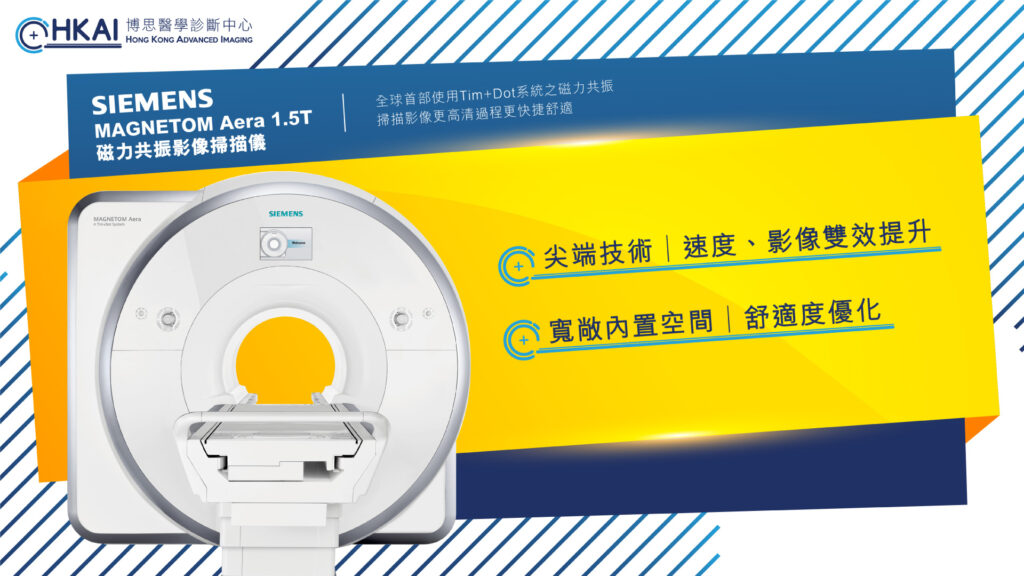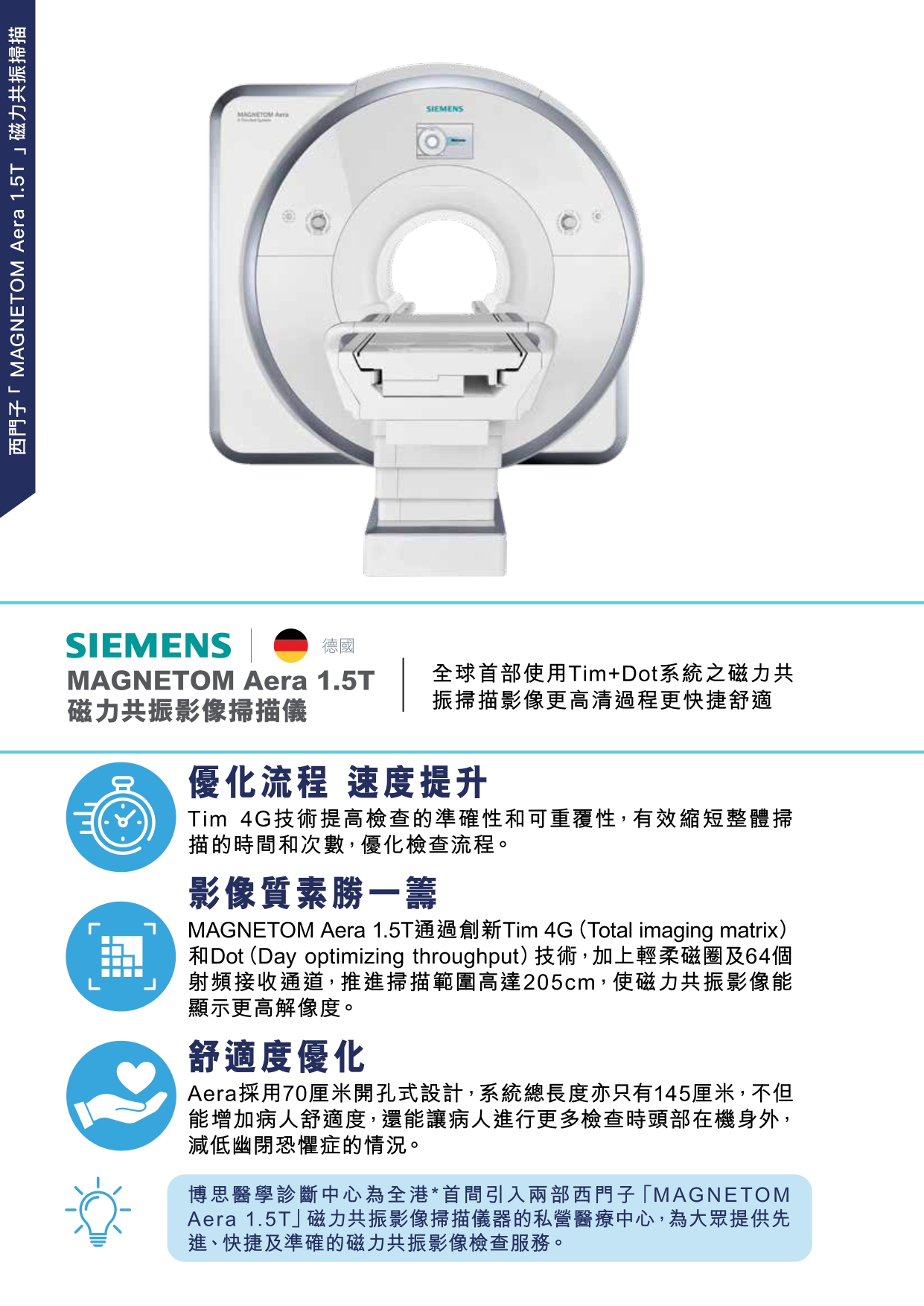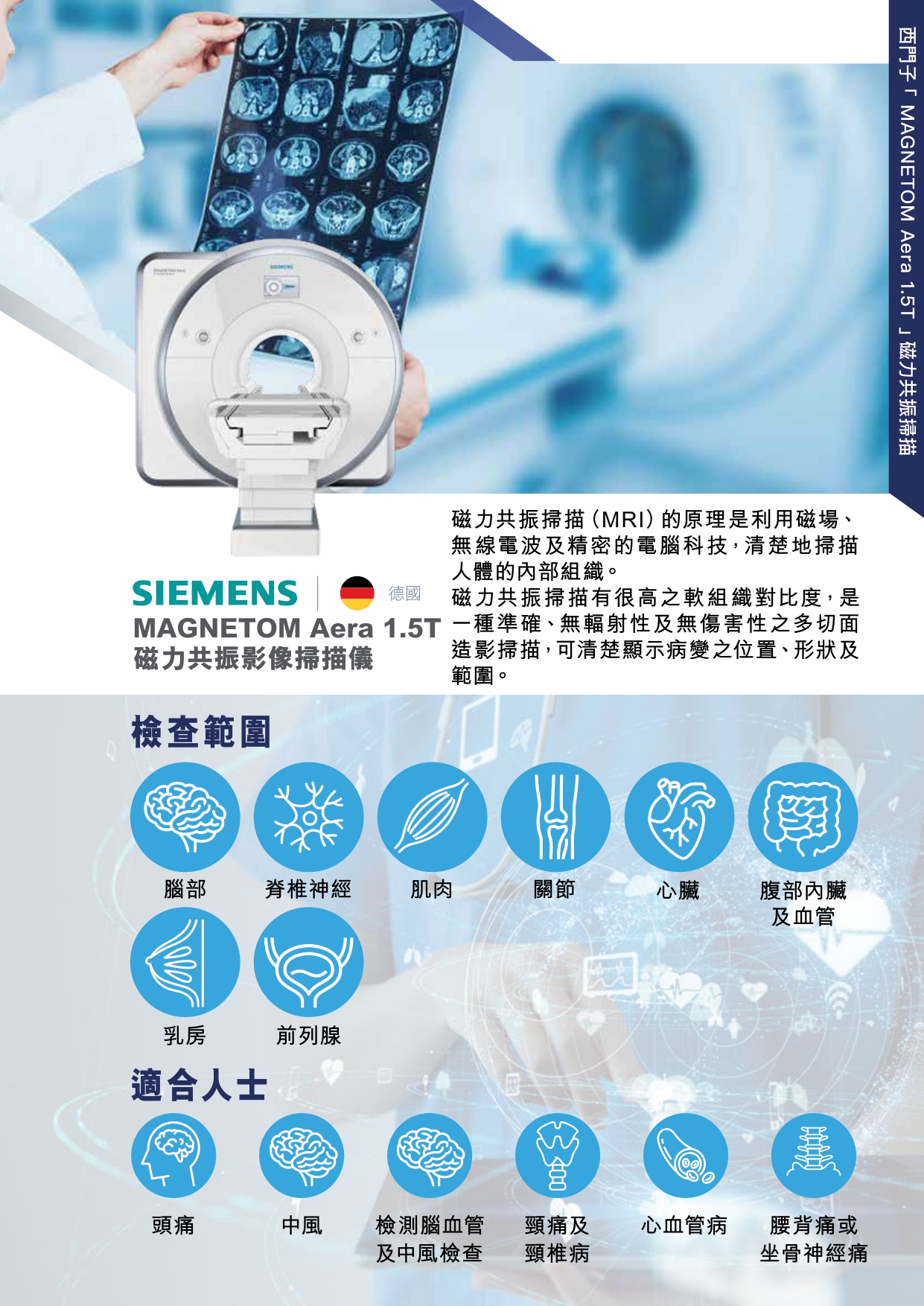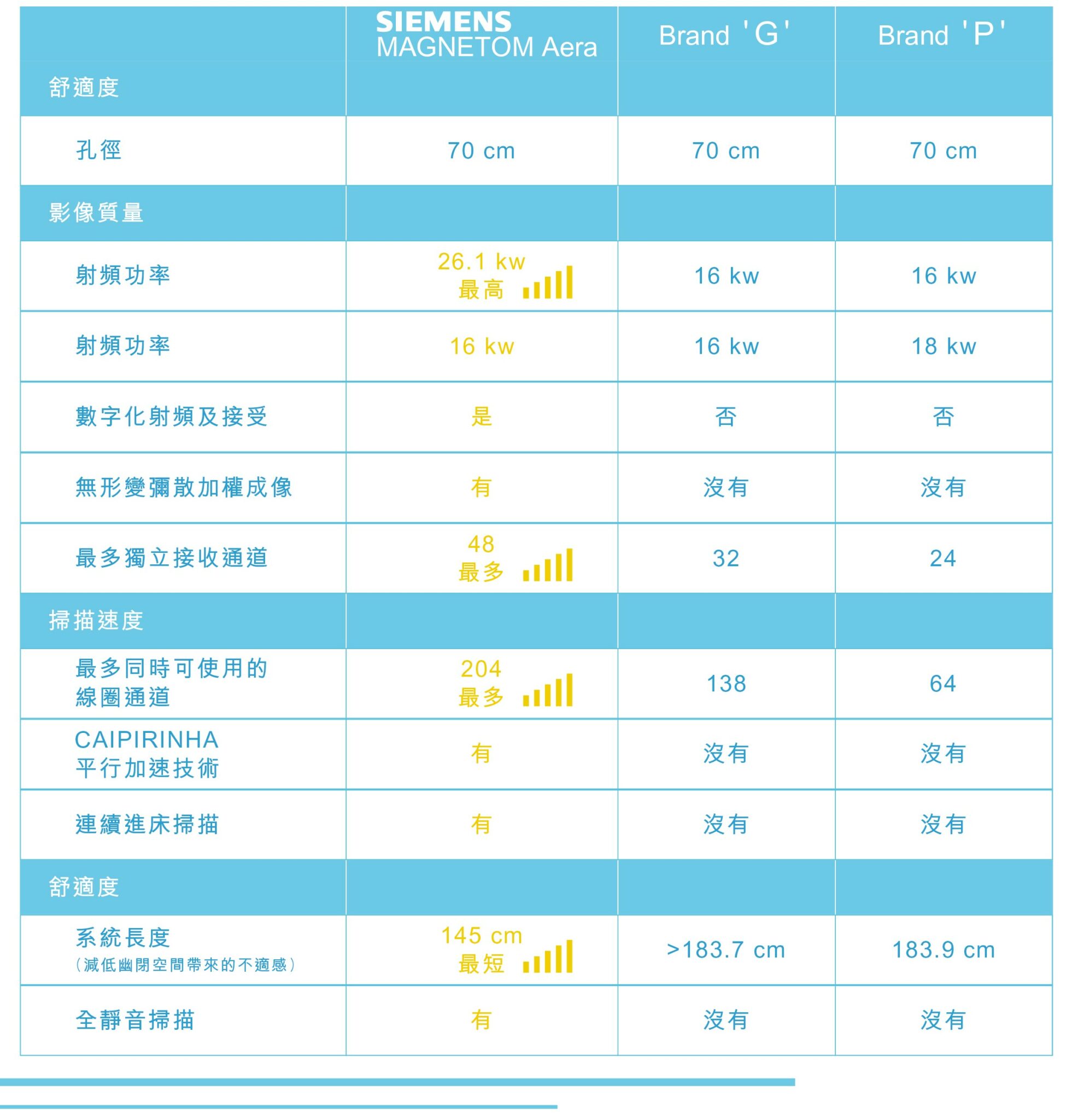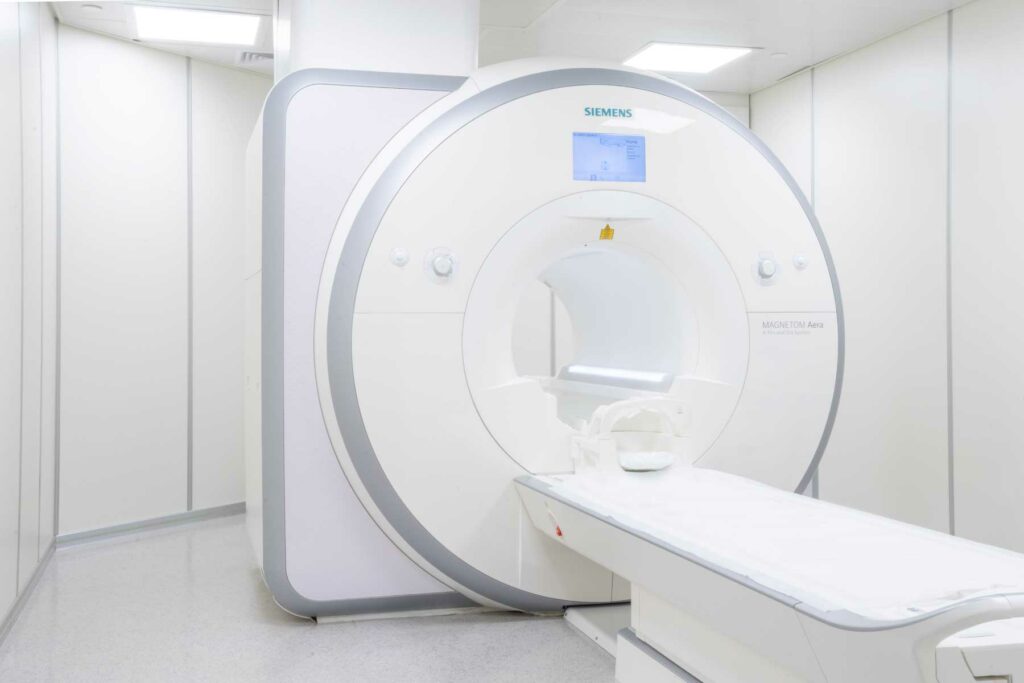
Contact Us
Magnetic Resonance Imaging (MRI Scan)
MRI Scan is a non-invasive, non-radioactive, and versatile medical imaging technique to examine the body, heart, brain, etc. Please contact us for the price, suitability, duration and precautions for the MRI scan. We are currently the first private medical centre to introduce two Siemens MRI scanners, providing better image quality, treatment time and accuracy than ever before. Our equipment allows us to improve precision and repeatability while optimising the screening procedure (Dot engine). Aera adopts a 70 cm bore design and the total length is only 145 cm. It increases patient comfort and allows patients to have their heads outside the machine for more examinations, avoiding situations that trigger claustrophobia. The new technology can reduce the noise by 70%, further optimising the imaging experience.

Siemens MRI Scanner
Aiming to deliver advanced, fast and accurate MRI services to the general public, HKAI is the first private medical centre in Hong Kong to introduce 2 Siemens MAGNETOM Aera 1.5T MRI scanners. The new technology (Tim 4G) can provide better image quality, treatment time and accuracy than ever before, while improving the precision and repeatability, to optimise the screening procedure simultaneously (Dot engine). Aera adopts a 70 cm bore design and the total length is only 145 cm. It increases patient comfort and allows patients to have their heads outside the machine for more examinations, avoiding situations that trigger claustrophobia. The new technology can reduce the noise by 70%, further optimising the imaging experience.
What is an MRI scan?
Magnetic Resonance Imaging (MRI) is a non-invasive examination designed to produce detailed images of the human body by utilising a strong magnetic field and radio waves. MRI is suitable for imaging most body parts (such as musculoskeletal and neurological systems) and is useful for check-up, medical diagnosis, staging of disease and follow-up without exposing the body to radiation.
The principle of MRI is to use magnetic fields and radio waves to generate signals from hydrogen nuclei (protons). Protons can be found in water molecules, which constitute most of the human body. The MRI images are generated from these signals after computer processing.
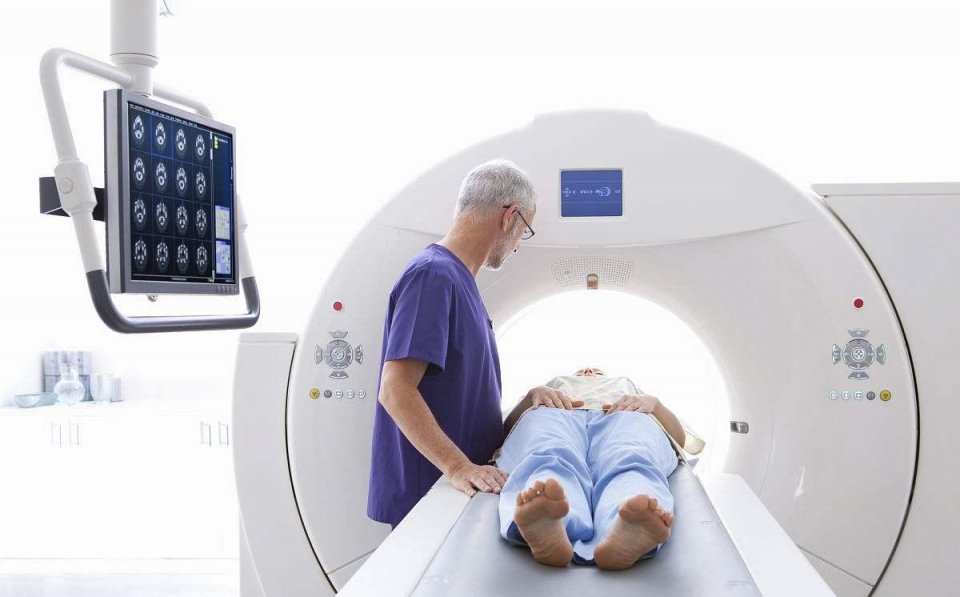
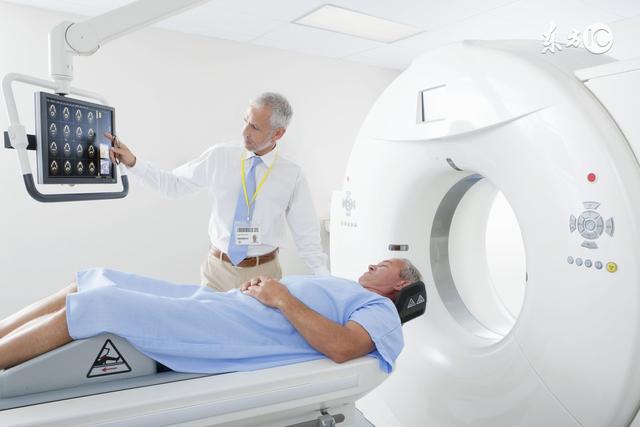
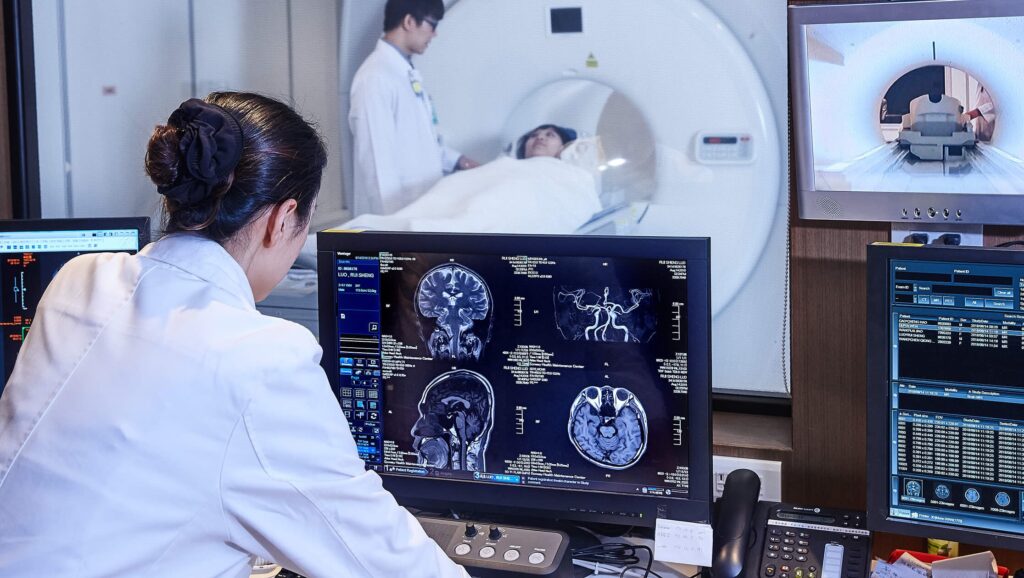
Procedures
The MRI scanner is a cylindrical machine with an inner tube surrounded by strong magnets. You will be examined while lying on the patient table that moves automatically.
Our medical staff will instruct you to lay comfortably on the patient table. The table will then gently slide into the machine until the body part to be diagnosed is in the middle of the scanner. The magnet tube is open on both ends and you can rest assured during your scan. You will also have an alarm button to alert the radiologist to significant discomfort you may feel at any point during the exam.
The duration of the MRI depends on the area to be examined (usually lasts between 15 minutes to about 1 hour). Please be patient and remain still, just like when taking a portrait photo. This is because any movements throughout the screening may affect the final result of imaging. A blurred image may form and may prolong the process.
The loudness of an MRI scan depends on the specific procedure and the machine used. We will require you to wear ear protection during the examination.
You should maintain normal breathing unless instructions are given by the radiologist to hold your breath for certain periods.
Certain MRIs require the use of a contrast agent for improved visibility, more accurate information and diagnosis. You will be informed by your radiologist in advance when the contrast agent is applied. You may feel a cool sensation and is advised to remain calm and stay still.
Precautions & Preparation before MRI
Get ready at home. Please note the following:
- Some eye make-up may contain metals that can interact with MRI magnets, do not wear make-up on the day of scan.
- If you are scheduled for-an abdominal or pelvic scan,please fast for at least 4 hours before the scheduled examination.
- A 6-hour fasting is required prior to the MRCP scan.
- Please bring along any previous negatives, CDs or medical reports (if available) for reference.
Upon your arrival, you will be asked to change into the clothing we offer to ensure no ferromagnetic materials or items in your clothing. For female patients, please remove your bra as it may contain metal that may pose danger.
Female patients should pay extra attention. Please inform our staff if you might be or are pregnant prior to the scan. MRI scan is not recommended in early pregnancy as its long-term or delayed biological effects on the foetus are not fully evident. MRI scans should only be carried out after medical assessment.
For your safety, please inform our medical staff before the MRI scan if you:
- Have a pacemaker, cochlear implant, or prosthetic heart valve installed
- Have vascular blockage, filter, or stent
- Have an insulin injector or surgical drain
- Have vessel clip, bone nail, bone plate, bone screw, or any metallic devices inside the body
- Have IUD, dentures, hearing aid
- Are wounded by metal shrapnel or bullet (especially in the eye), or worked in metal-based industries
- Have a tattoo, eyebrow tattoo, patches
- Are allergic to MRI contrast agent
- Have abnormal liver function
- Have claustrophobia
- Pregnant
- Wear ear makeup, coloured or cosmetic contact lenses
Due to the strong magnetic field generated around the MRI scanner, please refrain from bringing any metallic objects that may come loose into the MRI scan room. For example, glasses, watches, jewellery, safety pins, hair clips, etc. Items that may be damaged by the magnetic field should not be brought as well, such as credit cards, Octopus cards, hearing aids, smartphones, etc. Other ferromagnetic objects worn on the body that may pose potential safety hazards should also be removed, such as knee pads, waistbands, etc.
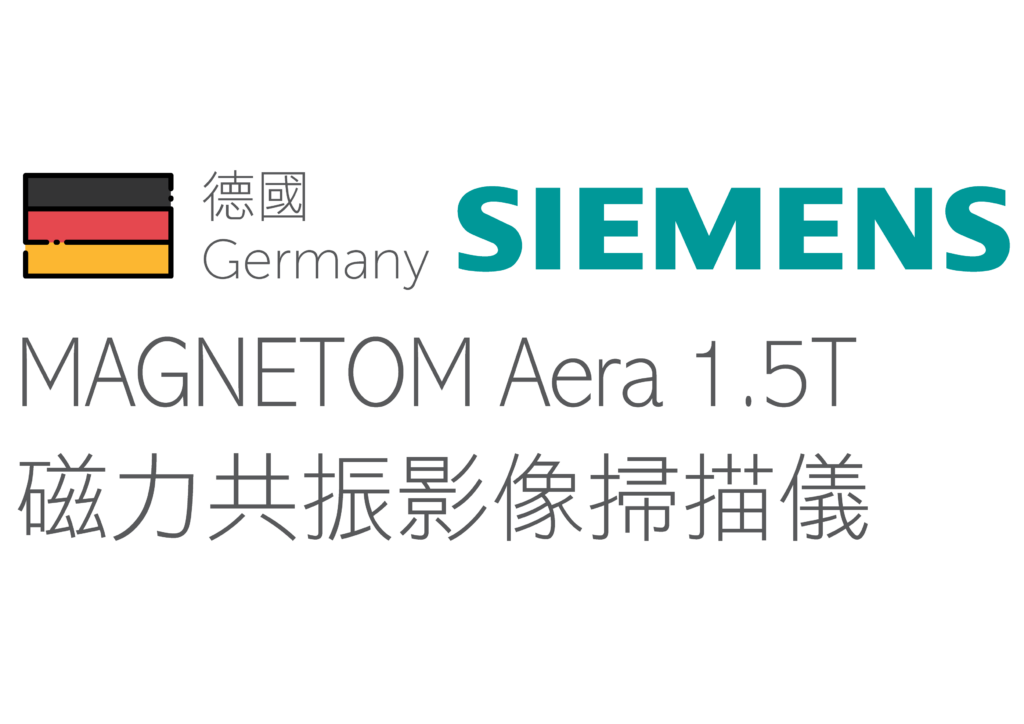
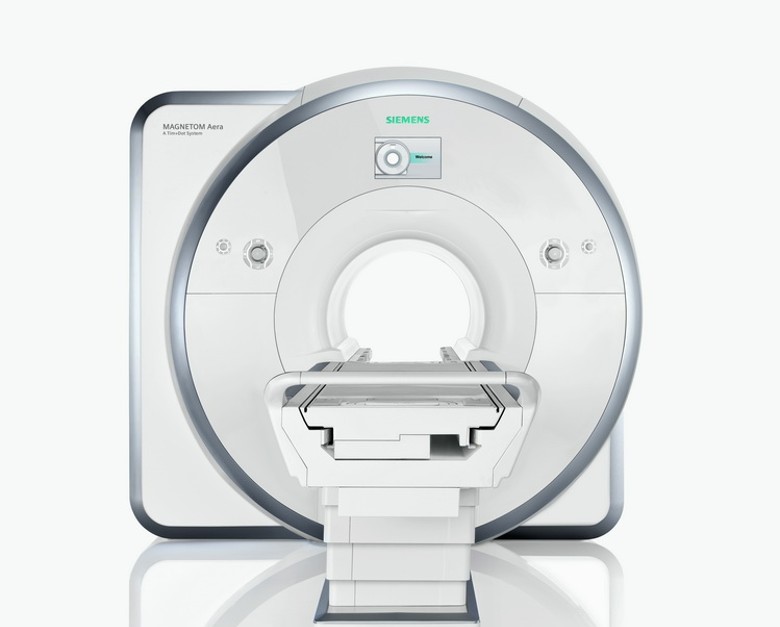
MRI Contrast Agent - Points to Note
Generally speaking, Gadolinium, the MRI contrast agent, is considered safe and causes fewer side effects than the contrast agent used in X-ray and CT scanning. The potential side effects of the Gadolinium contrast agent are classified as follows:
Mild symptoms: Transient metallic taste, abnormal sensation after prolonged standing (e.g. sensation of cold/ warm/ pain), itchy skin, nausea, headache, etc. (Less than 1% chance)
Severe symptoms: Bronchospasm, severe hypotension or other rare side effects. Death is extremely rare (Less than 1/130000 chance)
Approximately 1-7% of patients with severe renal failure or on dialysis may suffer from nephrogenic systemic fibrosis (NSF). Death cases are extremely rare.
Please inform our staff before the scan if you are allergic to MRI contrast agents.
MRI service is available in the following centres:
| Langham Place Flagship Centre (EC Specialists Premium PHF No.: DP000104) L12, Langham Place Office Tower, 8 Argyle Street, Mong Kok (Mong Kok station Exit E1) |
| Argyle Centre 4/F, Argyle Centre Phase1,688Nathan Road, Mong Kok (Mong Kok station Exit D2) 4/F, Argyle Centre Phase1,688Nathan Road, Mong Kok (Mong Kok station Exit D2) |
| 元朗分店 Shop No.11 12, Block 2, Yuccie Square, 38 On Ning Road, Yuen Long (Long Ping Station Exit E) 元朗安寧路 38 號世宙 2 座 11-12 號舖 (朗屏西鐵站E出口) |
| 荃灣分店 (安美醫學診斷中心) [AmMed Medical Diagnostic Center] – Unit 1105, 11/F, CDW Building, 388 Castle Peak Road, Tsuen Wan, N.T. (Tsuen Wan MTR Exit A3) 新界荃灣青山公路388號中染大廈11樓1105室 (荃灣地鐵站A3出口) |
| 銅鑼灣分店 8/F Tower535,535Jaffe Road, Causeway Bay 8/F Tower535,535Jaffe Road, Causeway Bay |
| Central B/F & G/F EC Healthcare Tower (Central), 19-20 Connaught Road Central, Central (Central MTR Exit A1) B/F & G/F EC Healthcare Tower (Central), 19-20 Connaught Road Central, Central (Central MTR Exit A1) |
MRI Q&A
Magnetic Resonance Imaging (MRI) employs a strong magnetic field that forces protons in the body to release electromagnetic waves to create detailed images of the inside of the body. MRI is non-radioactive and therefore is suitable for a check-up, diagnosis, and follow-up of most body parts (including the musculoskeletal, and the nervous system). MRI is more commonly used for examination of the brain, spinal nerves, ligaments, joints, muscles, heart, blood vessels, breasts, abdomen, etc. It is also used to monitor changes in fatty liver and the progress of cartilage repair.
MRI scan is an imaging scan that utilises a magnetic field and resonance frequency. With the generated strong magnetic field, the hydrogen particles inside the human body are realigned to exhibit distinctive magnetic resonance.
If necessary, a contrast agent will be injected to allow blood vessels and abnormal tissue to be easily visualised. There is no weird sensation upon injection. The possibility of having allergic and biological reactions is low.
由於磁力共振檢查對胎兒的長期或延遲性生物效應尚未完全清楚,因此妊娠早期的孕婦不建議進行磁力共振。只有得到專業人士批准,才能進行檢查。
For your safety, please inform our medical staff before the MRI scan if:
- you have a cochlear implant, IVC filter, Swan-Ganz catheter, insulin injector, internal electrode, stimulator, nerve stimulator, implantable drug delivery devices, stent, vessel clip
- you have performed the surgery:
- Using astrictive steel wire, or steel plate, and steel nail to immobilise or install artificial joints
- Fitting metallic dentures or dental prosthetics (artefacts may form which affect the evaluation)
- Pregnant
- Claustrophobia
The examination varies from 30 minutes to 2 hours, depending on the area to be examined and the number of tests. The scan can be done in a day procedure centre where patients do not need to stay the night.

